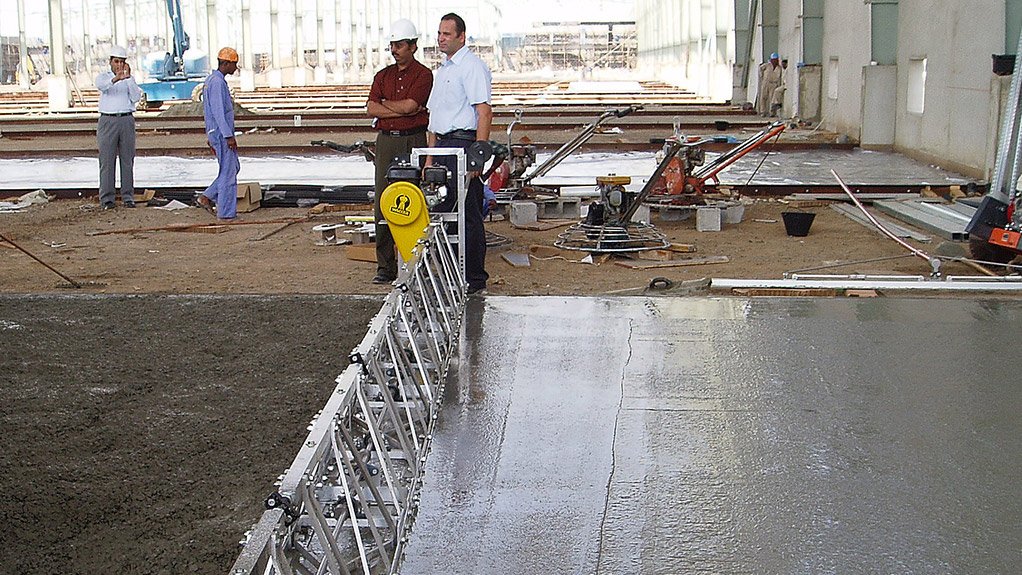In the context of the struggling South African construction industry, owing to a lack of investment in infrastructure projects, extended and institutionalised knowledge about improving the durability of concrete structures is crucial to the competitiveness of the South African concrete industry, according to concrete education institution The Concrete Institute’s School of Concrete Technology senior lecturer John Roxburgh.
He makes the point that durability and sustainability of concrete are intrinsically linked.
“If you build a durable structure, it becomes more sustainable, as you don’t have to spend lots of time and energy repairing and maintaining it. The life-cycle cost is reduced, and that’s why durable concrete is so important.”
The lack of capital needed to fix infrastructure places even more importance on durability, which the School of Concrete Technology emphasises, says Roxburgh.
“At least 50% of concrete durability is the way you handle and look after that concrete. You can have a very durable mix design, but if you don’t place, compact, cure and protect the concrete correctly, it’s not going to be durable.”
Roxburgh also emphasises that a focus on durability will result in cost savings because of reduced maintenance.
While stressing the importance of skills gained and education on concrete received at institutions such as The School of Concrete Technology, in Midrand, Johannesburg, he laments the lack of knowledge in this regard among industry professionals, such as projects managers and engineers, which he says can contribute to poor concrete in structures.
“If people know about concrete, they’re going to save money on the job. “Construction firms are suffering, a lot of jobs have been lost, and there’s simply isn’t any money to go around in the construction industry, hence, people don’t get trained.
“The outlook is not good, but hopefully, with this new positive dispensation that South African President Cyril Ramaphosa is bringing to South Africa, things will start picking up,” states Roxburgh.
Education about the use of concrete is crucial, as concrete is the most used material at construction sites. It is also a relatively affordable and durable building material when compared with other building materials, Roxburgh states.
“When an engineer specifies concrete, if he or she knows about concrete, they have a good idea of what to specify, and there’s a better chance of him or her getting it right the first time.”
While emphasising that there are innovative solutions and technological advances for concrete, such as self-healing and decorative concrete, Roxburgh states that a greater emphasis is placed on the basics of concrete technology at The School of Concrete Technology.
While the school mentions such innovative technologies in its education, it focuses more on the basics, as instruction on developing and using innovative concrete technologies could take many years, he states.
For example, despite the emergence of three-dimensional printing used for construction, many technical aspects – such as the positioning of the relevant joints, as concrete progressively shrinks, and using the correct materials – would need to be worked on, Roxburgh states.
By concentrating on the basic concepts, the school provides individuals with the ability “to leap forward into new technologies from a solid foundation”, he adds.
The School of Concrete Technology offers the SCT30 Concrete Technology course, which is a five-day course and provides a basic outline of concrete knowledge.
A more comprehensive education that is internationally recognised can also be obtained with the Advanced Concrete Technology certification, which is presented in South Africa every two years. The current two-year course started in January this year.
Edited by: Zandile Mavuso
Creamer Media Senior Deputy Editor: Features
EMAIL THIS ARTICLE SAVE THIS ARTICLE
ARTICLE ENQUIRY
To subscribe email subscriptions@creamermedia.co.za or click here
To advertise email advertising@creamermedia.co.za or click here













